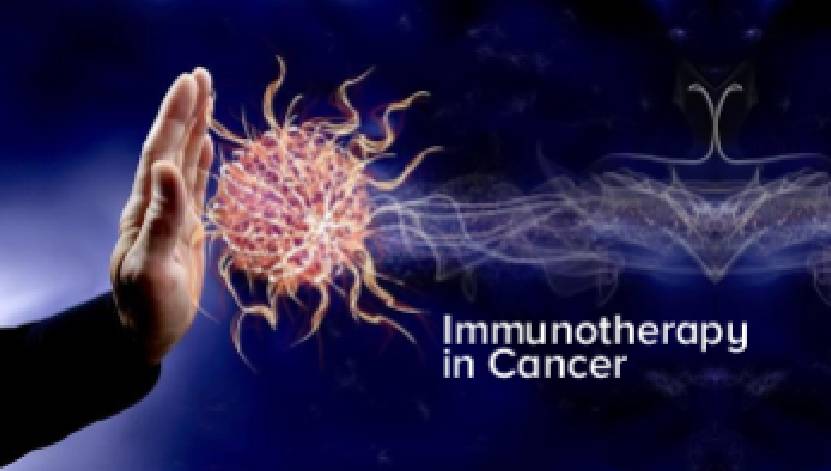The immune system is a powerful weapon against disease, infections and defective cells. Because cancer cells are the body’s mutated cells, they are not always recognized by the immune system as invaders. Also, cancer cells have multiple ways to evade, shut down or overpower an immune attack. Immunotherapy in cancer is the treatment that uses certain parts of a person’s immune system to fight cancer.

The immune system is a powerful weapon against disease, infections and defective cells. Because cancer cells are the body’s mutated cells, they are not always recognized by the immune system as invaders. Also, cancer cells have multiple ways to evade, shut down or overpower an immune attack. Immunotherapy in cancer is the treatment that uses certain parts of a person’s immune system to fight cancer.
What is the relationship between cancer and the immune system?
While many of our cells grow and divide naturally, this behaviour is tightly controlled by a variety of factors, including the genes within cells. When no more growth is needed, cells are told to stop growing.
Unfortunately, cancer cells acquire defects that cause them to ignore these stop signals, and they grow out of control. Because cancer cells grow and behave in abnormal ways, this can make them stand out to the immune system, which can recognize and eliminate cancer cells through a process called immuno surveillance.
However, this process isn’t always successful. Sometimes cancer cells develop ways to evade and escape the immune system, which allows them to continue to grow and metastasize, or spread to other organs. Therefore, immunotherapies are designed to boost or enhance the cancer-fighting capabilities of immune cells and tip the scales in the immune system’s favor.
How does immunotherapy work against cancer?
This can be done in a couple of ways:
What is the difference between immunotherapy and chemotherapy?
Chemotherapy is a direct form of attack on rapidly dividing cancer cells, but this can affect other rapidly dividing cells including normal cells. When patients respond, the treatment’s effects happen immediately. These direct effects of chemotherapy, however, last only as long as treatment continues.
Immunotherapy in cancer treats the patient’s immune system, activating a stronger immune response or teaching the immune system how to recognize and destroy cancer cells. Immunotherapy may take more time to effect, but those effects can persist long after treatment ceases.
What are the types of immunotherapy in cancer?
Immunotherapy treatments can be broken down into five types:
Which cancers are treated with immunotherapy?
Immunotherapy drugs have been approved to treat many types of cancer including lung cancer, skin cancer (melanoma), urinary bladder cancer, kidney cancer, colon cancer, liver cancer (HCC), head and neck cancer, etc.
What are the side effects of immunotherapy?
Immunotherapy can cause side effects, many of which happen when the immune system that has been revved up to act against cancer also acts against healthy cells and tissues in your body. Fatigue is among the most common side effects seen, with an estimated overall frequency of 16 to 24 percent for the anti-programmed cell death receptor 1 (PD-1) and anti-programmed cell death ligand 1 (PD-L1) agents. Other common side effects include skin and mucosal toxicity, diarrhea and colitis, pneumonitis, hepatotoxicity and endocrinopathies. These side-effects don’t occur immediately after initiation of immunotherapy, most of these are delayed side-effects. It is important to note that most of these side effects are reversible with appropriate interventions.
How can we tell whether immunotherapy is working?
Immunotherapy in cancer may take longer to produce detectable signs of tumor shrinkage compared to traditional treatments. Sometimes tumors may appear to grow on scans before getting smaller, but this apparent swelling may be caused by immune cells infiltrating and attacking cancer. Many patients who experience this phenomenon, known as pseudo progression, often report feeling better overall. In certain cancer types, immune-related side effects may be linked with treatment success.
Author: (Dr. Roshan Koshy Jacob)